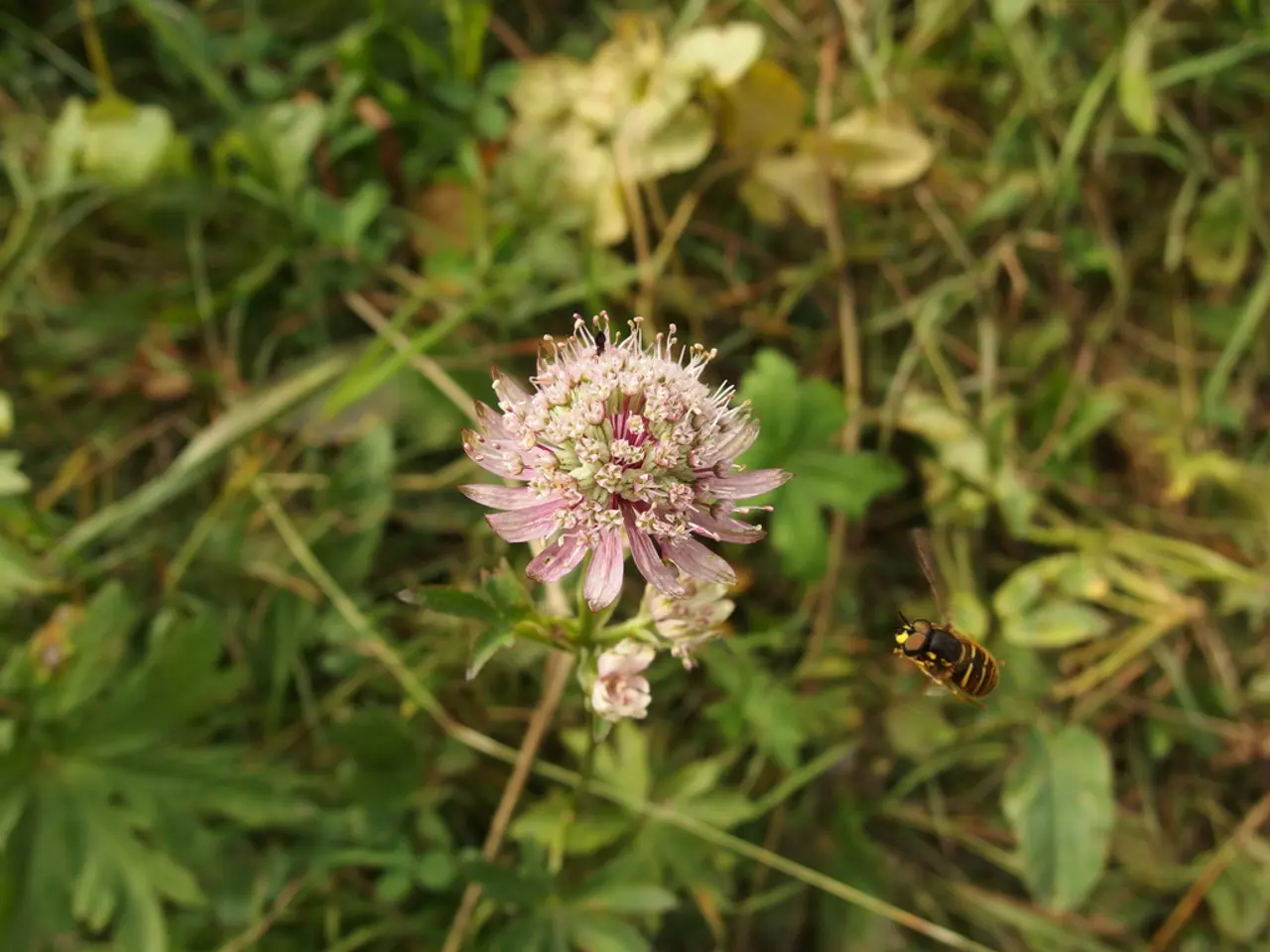Summer Garden Pest Management Techniques Employing Organic Methods
Summer is a season of growth and vibrancy in the garden, but it can also be a time when common pests like aphids, spider mites, whiteflies, caterpillars, and nematodes pose a threat. However, effective organic pest control strategies can help maintain a balanced ecosystem and promote healthy plant growth.
One such strategy is the use of Neem Oil, a natural product that prevents feeding and reproduction in insects, making it effective against aphids, mealybugs, spider mites, and whiteflies. To use Neem Oil, mix one teaspoon of the oil in a liter of water, add a little liquid soap, and spray on affected plants once a week or after rain.
Insecticidal Soap is another organic solution, working well against aphids, thrips, and spider mites by disrupting their breathing and movement. To prepare the soap, mix one tablespoon of vegetable oil with one teaspoon of liquid natural soap in a liter of water and spray every few days.
For a more unconventional approach, consider a Garlic Pepper Spray, which is effective against aphids, whiteflies, spider mites, and caterpillars. To create the spray, blend garlic and hot peppers with water.
Predatory Insects, such as lady beetles and lacewings, are natural predators that can control aphids and other pests. Introducing these beneficial insects into your garden can help maintain a balanced ecosystem.
Diatomaceous Earth (DE) is primarily used for slugs but can also deter other crawling pests. Dust DE around the plants to cause dehydration in pests.
Crop Rotation and Biofumigation are effective in controlling nematodes. Rotate crops, and for nematodes, use plants like marigolds or rye as biofumigants to repel them.
Creating a diverse garden ecosystem can attract more beneficial insects and improve pest control naturally. Incorporate a variety of plants that attract beneficial insects, such as flowers that attract pollinators and beneficial bugs.
Remember to look for eggs on leaves, as some pests lay eggs there. Spider mites leave tiny webs and cause leaves to turn yellow. Webbing on the undersides of leaves is a sign of spider mites. Monitor plant health, as stunted or unhealthy growth may be due to pests. Examine leaves for signs of pests or damage, both on the tops and bottoms.
Basil repels flies and mosquitoes when planted with peppers, while garlic keeps aphids and spider mites at bay when planted with roses. Chives deter carrot flies when planted with carrots. Organic options for pest control are safe for beneficial insects such as bees and ladybugs.
Using these organic pest control strategies for vegetable gardens during summer can provide peace of mind, ensuring a bountiful harvest and a thriving garden ecosystem.
Adopting a home-and-garden lifestyle that incorporates environmentally friendly solutions can promote a balanced ecosystem in the summer garden. For instance, using Neem Oil, Insecticidal Soap, or a Garlic Pepper Spray for pest control can effectively manage common garden pests like aphids, spider mites, whiteflies, caterpillars, and thrips. Furthermore, cultivating a diverse garden with flowers that attract beneficial insects can enhance the garden's self-sustaining capabilities and contribute to a healthier, more vibrant home-and-garden lifestyle.




